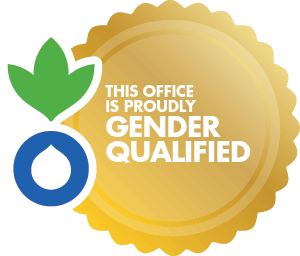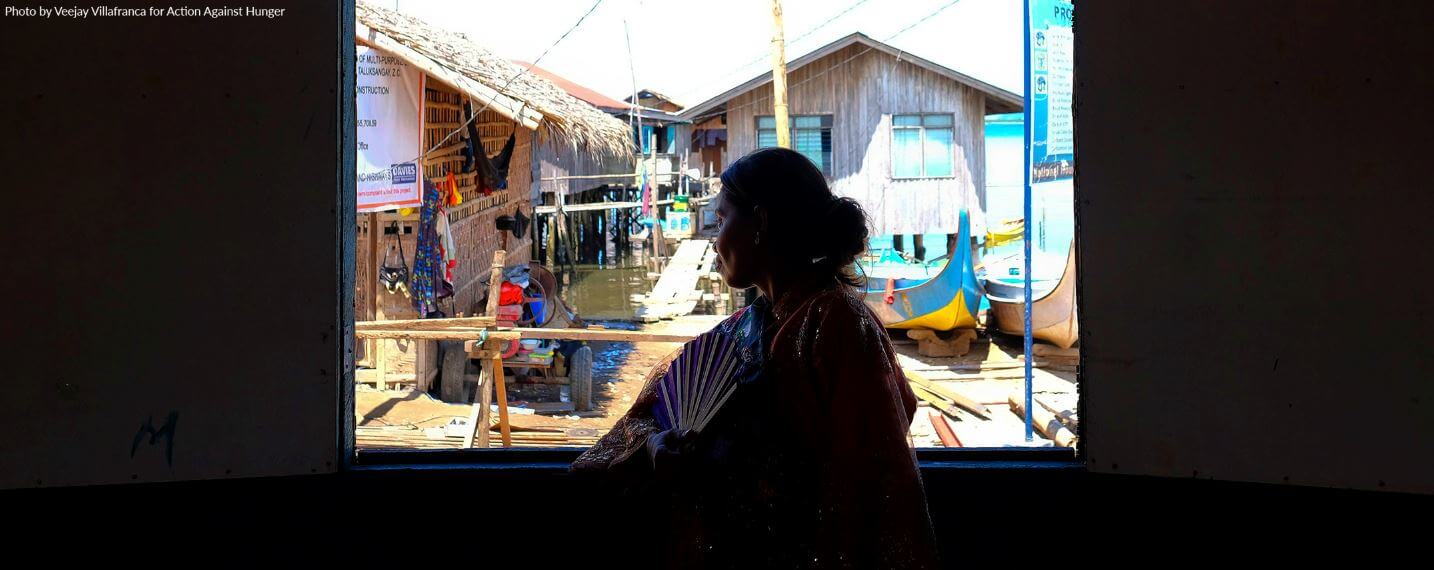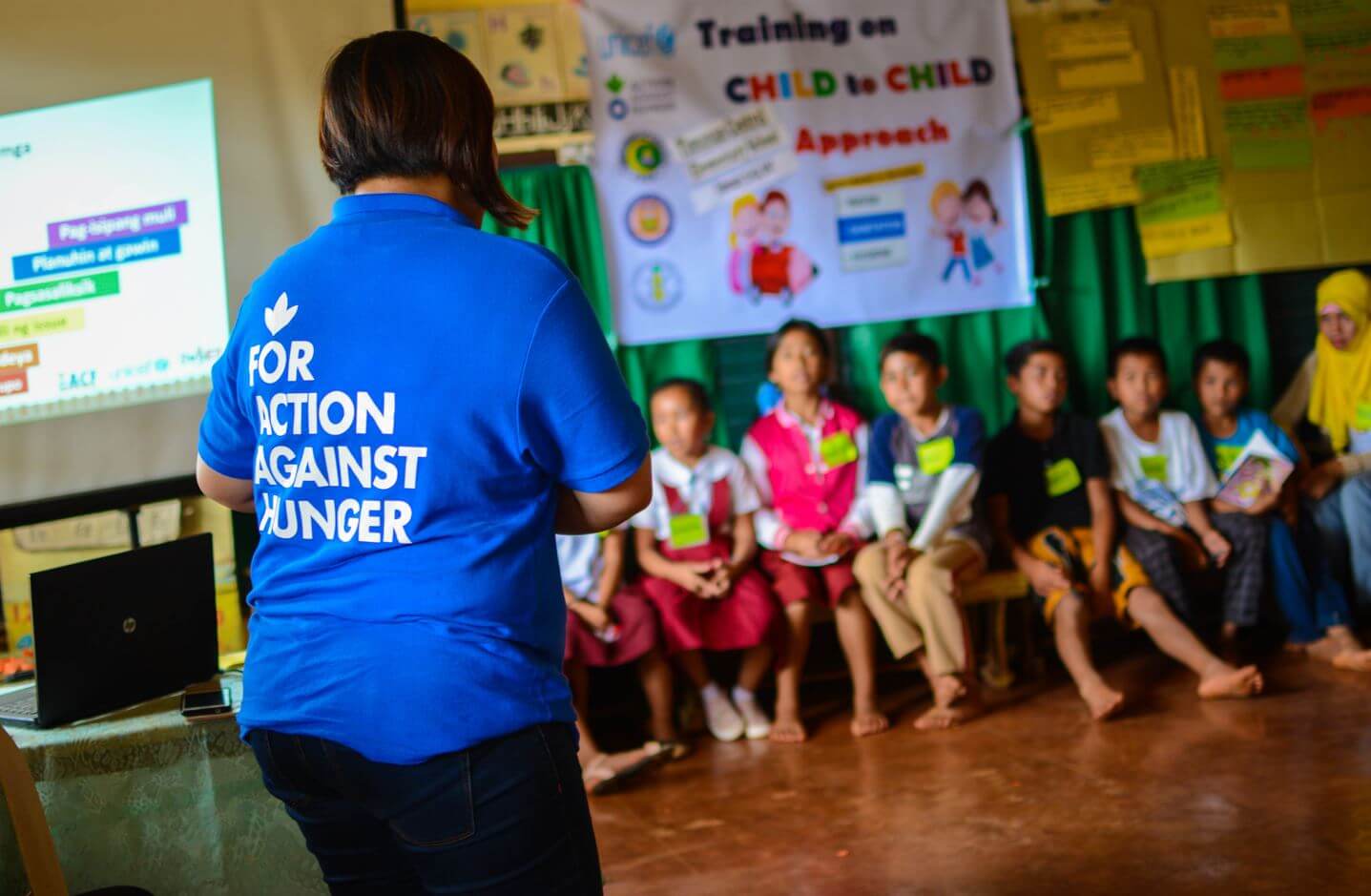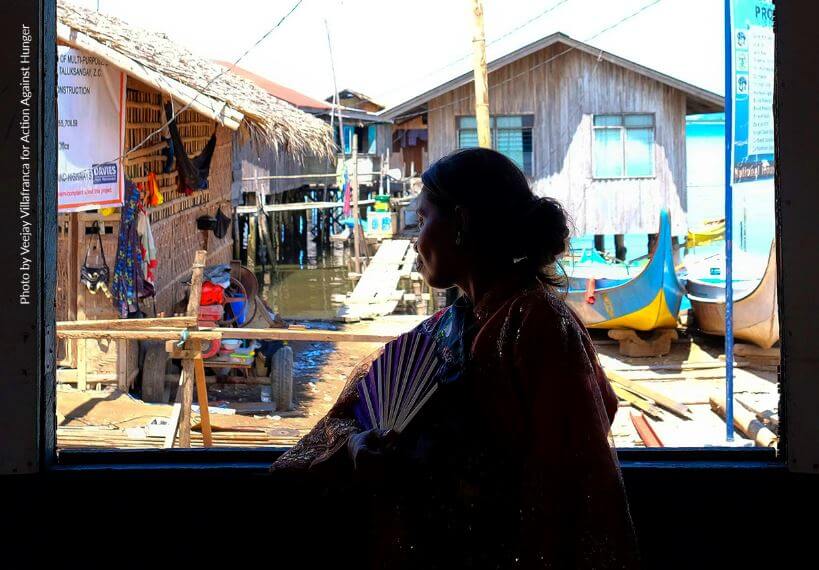
GENDER EQUALITY AND GENDER-BASED VIOLENCE IN EMERGENCIES AND DEVELOPMENT
Gender inequality and gender-based violence (GBV) are fundamental causes of hunger. Harmful gendered social norms mean that women and girls often eat last and least, and have less control over resources, access to education and political representation. The COVID-19 pandemic has exacerbated key risk factors for violence against women and girls, including economic and food insecurity, unemployment, and confined living conditions. In this context, the need to address gender inequality and gender-based violence has become more urgent than ever.
Action Against Hunger is committed to gender equality and the elimination of gender-based violence. Through the work of the International Gender Unit, we provide tools and resources to our teams in nearly 50 countries to help mitigate gender-based violence and gender discrimination. Since 2018, Action Against Hunger has been a proud member of the global Call to Action on Protection from Gender-based Violence in Emergencies, a multi-stakeholder initiative that aims to transform the humanitarian response to GBV and address GBV from the earliest stages of a crisis.
GENDER EQUALITY AND GENDER-BASED VIOLENCE IN EMERGENCIES AND DEVELOPMENT
Gender inequality and gender-based violence (GBV) are fundamental causes of hunger. Harmful gendered social norms mean that women and girls often eat last and least, and have less control over resources, access to education and political representation. The COVID-19 pandemic has exacerbated key risk factors for violence against women and girls, including economic and food insecurity, unemployment, and confined living conditions. In this context, the need to address gender inequality and gender-based violence has become more urgent than ever.
Action Against Hunger is committed to gender equality and the elimination of gender-based violence. Through the work of the International Gender Unit, we provide tools and resources to our teams in nearly 50 countries to help mitigate gender-based violence and gender discrimination. Since 2018, Action Against Hunger has been a proud member of the global Call to Action on Protection from Gender-based Violence in Emergencies, a multi-stakeholder initiative that aims to transform the humanitarian response to GBV and address GBV from the earliest stages of a crisis.
OUR APPROACH TO GENDER EQUALITY
WHAT IS GENDER EQUALITY?
Gender equality is the state in which access to rights or opportunities is unaffected by one’s gender identity, gender expression or sexual orientation. In other words, when there is an environment where everyone has access to the same opportunities and rights across all sectors and levels of society, including economic participation and decision-making. When the many behaviours, aspirations, needs and perspectives of all are equally valued and favoured; one can conclude that gender equality is happening.
WHY IS GENDER EQUALITY IMPORTANT FOR OUR ORGANIZATION AND OUR WORK?
Action Against Hunger has made gender equality an important part of our organization and work. In our fight against hunger, we consider the different roles, needs and opportunities of men, women, boys and girls. Because of this, our programs not only tackle malnutrition, but also work to close the gender gap and make a lasting impact. Gender inequality is a cause and consequence of hunger.
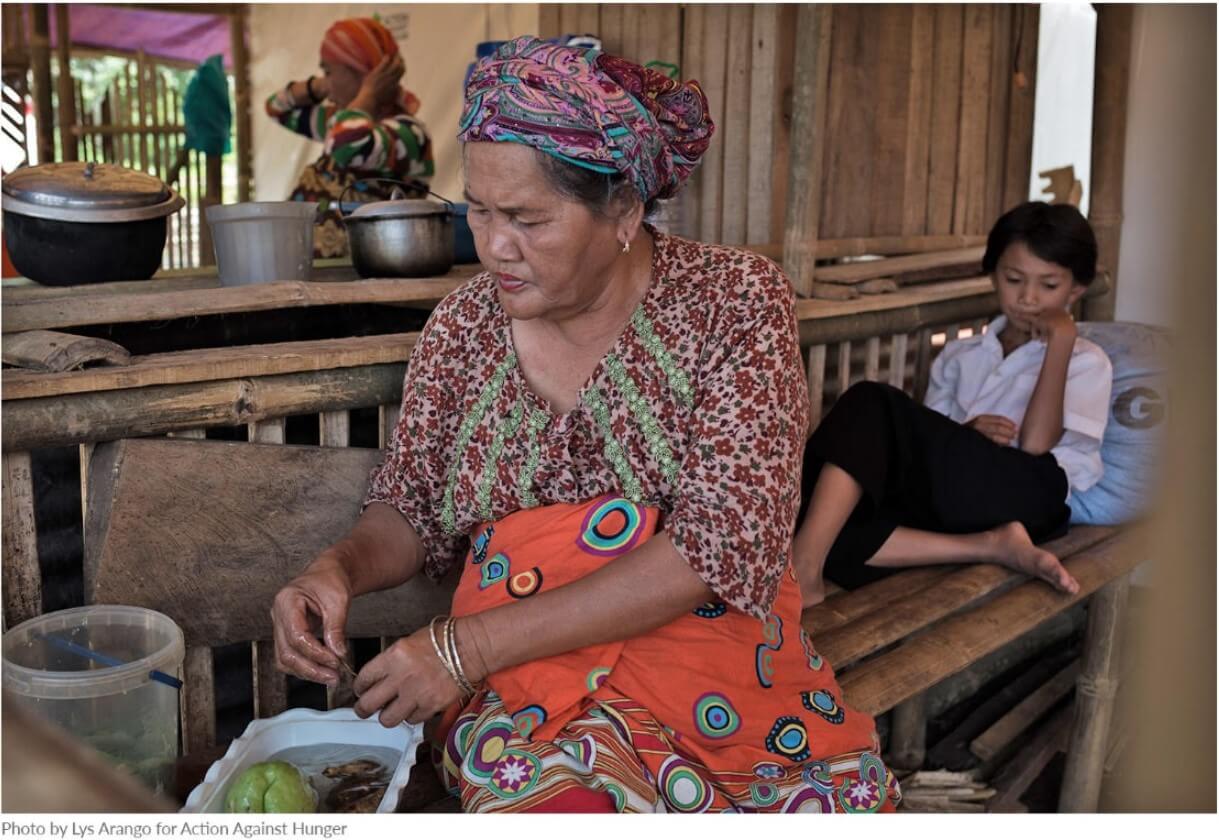
Worldwide, women produce the majority of food, and they are the primary caregivers for children and other family members. Although this is fundamental for the development of societies, the caregiving economy is usually unpaid, invisible and unrecognized. This is an important factor to consider, since it is estimated that 60% of the world’s hungry are women and girls. Gender inequality leads to a higher malnutrition rates among women and girls.
WHAT IS OUR APPROACH TO ENSURING GENDER RESPONSIVE PROGRAMMING?
The first step we take to ensure gender responsive programming is understanding the gender and age dynamics of societies where we implement our projects. After that, we make sure all those gender dynamics are considered at project level, to ensure every gender and age group needs are covered. Thus, everyone benefits from the project, participates in its design and we can prevent obstacles and gender-based violence.
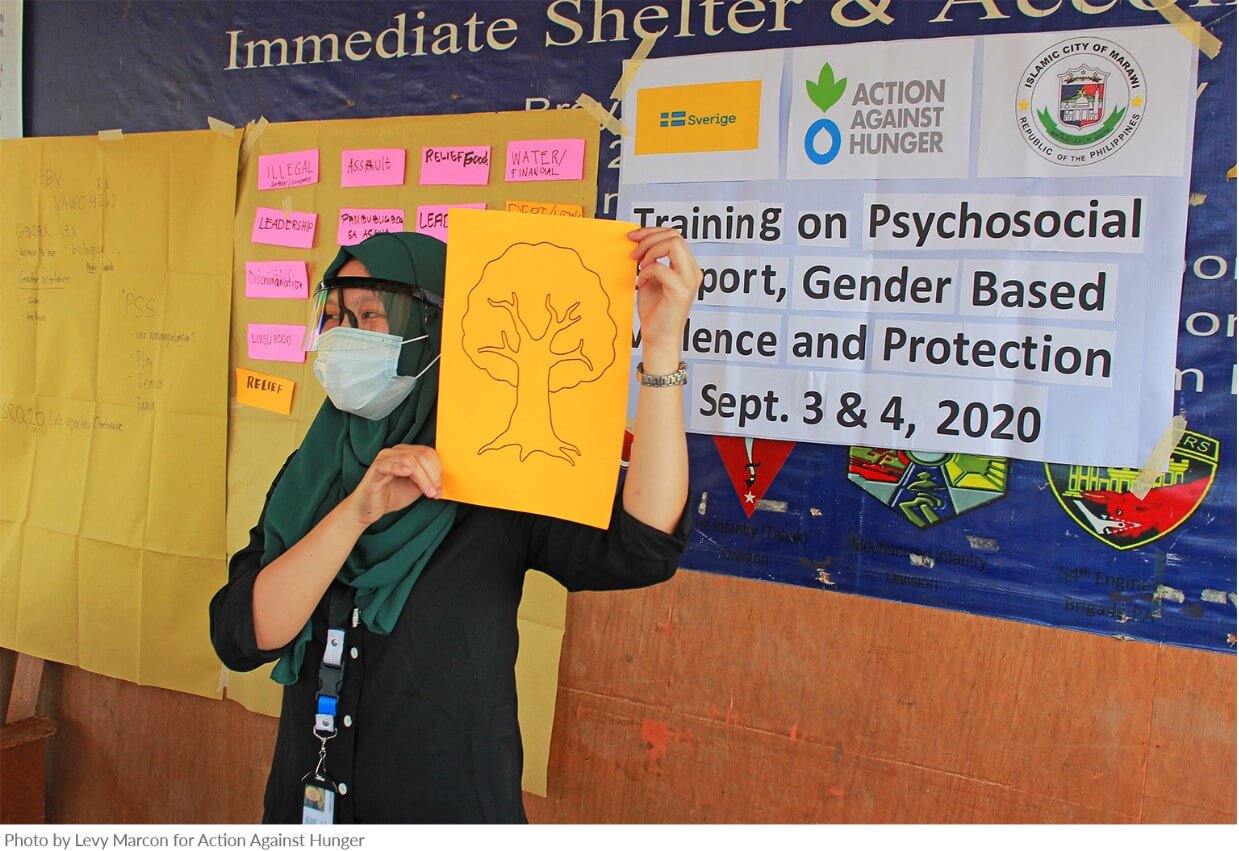
HOW DOES ACTION AGAINST HUNGER HOLD ITSELF ACCOUNTABLE FOR GENDER EQUALITY IN THE ORGANIZATION?
Gender equality is considered in all our internal and external policy and practice. We are committed to building the capacity of our staff and our partners to be able to both gender mainstream and engage in transformative programming. Action Against Hunger has developed an internal set of standards and qualification called the Gender Minimum Standards. They guide our teams on our common approach to gender, and on the basics of gender in practice.
THE FIVE STANDARDS WHICH ACTION AGAINST HUNGER HOLDS ITSELF ACCOUNTABLE TO ARE:
- Internal processes and practices contribute to an enabling environment for gender equality.
- Policies and practices involving partners, stakeholders and beneficiaries are gender sensitive.
- Staff are supported and encouraged to mainstream gender.
- Staff capacity to mainstream gender equality is developed and reinforced.
- Gender is considered in all programs.
GENDER BASED VIOLENCE AND NUTRITION
WHAT IS GENDER BASED VIOLENCE (GBV)?
Gender-based violence (GBV) is an umbrella term for any harmful act that is perpetrated against a person’s will, and that is based on socially ascribed (gender) differences between males and females.
WHY IS IT IMPORTANT FOR OUR ORGANIZATION TO CONSIDER GENDER-BASED VIOLENCE IN OUR WORK?
Gender-based violence (GBV) and undernutrition are part of a vicious cycle. Increasing levels of gender inequality and power imbalance are a cause and consequence of gender-based violence.
Some examples of how gender-based violence is linked to undernutrition include:
- Increased stress, lack of basic needs and disagreements on how household resources (such as food) are managed can increase forms of domestic violence.
- Higher levels of food insecurity and hunger can lead women or men to exchange food for sex.
- Survivors of gender-based violence may experience physical, psychological and emotional consequences that impact their consumption of healthy and nutrition foods.
HOW DOES ACTION AGAINST HUNGER INTEGRATE GENDER-BASED VIOLENCE RISK MITIGATION INTO ITS NUTRITION AND HEALTH PROGRAMS?
To effectively mitigate and prevent gender-based violence in our programs, we begin by understanding the risks and causes of gender-based violence in the communities that we work. We also connect and coordinate with gender-based violence specialists and other sectors to understand what services available; how other actors are mitigating and prevent gender-based violence in the community; and how our programs can link to those services.
Once we understand the risks and opportunities for collaboration, we can take specific actions to mitigate the risks of gender-based violence, depending on the context. Some examples include:
- Building the capacity of staff involved in designing, implementing and monitoring a project
- Ensuring the community can access, and is comfortable using feedback mechanisms
- Creating support groups for women and men participating in nutrition programs to discuss issues such as childcare and household work in addition to nutrition concerns
- Ensuring adequate lighting both inside and outside of latrines and other WASH facilities
